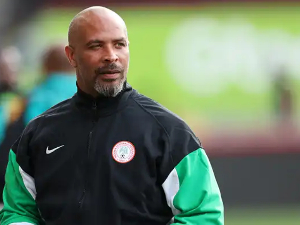Marketing professionals say businesses can remain profitable while complying with environmental policies such as the Lagos State ban on single-use plastics.
In separate interviews with marketing experts, they explained that businesses had no reason to worry about sustainability practices shrinking their bottom line.
Restrictions on plastic, including a ban on SUPs in Lagos State, are among governmental efforts on environmental sustainability, which the business community has repeatedly protested against.
For example, the Manufacturers Association of Nigeria had called for a change in Lagos State’s approach to the plastic ban, arguing that plastic manufacturers would be hit and many Nigerians would lose jobs.
However, marketers present a different perspective that if society does not survive, the industry cannot survive.
A former President of the National Institute of Marketing of Nigeria, Tony Agenmonmen, argued that Nigerian businesses need a shift in mindset to embrace sustainability without sacrificing profits. He maintained that marketing professionals do not need to fret about environmental policies.
He explained, “I don’t think making a profit and being sustainable or environment-friendly are in conflict. I think it’s just a reorientation. Perhaps we’re starting a bit late as a country. In Rwanda, for example, the ban on single-use plastics has existed for quite a while.”
Agenmonmen noted that environmental degradation comes with a cost that eventually catches up with businesses, adding that continued pollution impacts not just the community, but also the companies themselves.
He said, “If you’re using single-use plastics that block drainages and create environmental problems, it will still affect the health of people, possibly even your employees. Eventually, the cost of clearing these gutters will affect taxes imposed on companies and individuals. It’s a cycle.”
The former NIMN president warned against the recurring habit of seeking delays in policy enforcement, particularly in the case of the Lagos ban, stating, “The discussion around single-use plastics in Lagos has been ongoing for a while. I think the government has given enough sensitisation and enough time.
“I would say the government should go full steam in implementing it because I think nobody can accuse the government of not giving enough notice.”
Agenmonmen stressed that sustainability should not be treated as optional and encouraged marketers to be at the forefront of securing the environment.
He remarked, “Preserving the environment is not an option. It should not be a question of whether marketing people make a profit or not. We make a profit by doing business the right way. Sustainability means today, tomorrow, and the future.
“Yes, you can dump plastics all over and make a profit today. But long-term, that’s not sustainable for your company or society. Marketing should be at the forefront of this campaign.”
Similarly, marketing professional and Registrar of NIMN, Patience Sado, said marketers have a critical role in helping companies navigate the balance between profit and environmental responsibility.
She said, “Businesses in Nigeria can play a crucial role in advancing better environmental practices by integrating sustainability into their operations. That includes influencing supply chains, participating in community policy development, and promoting energy efficiency and waste management.”
She encouraged firms to go beyond national environmental compliance and aim for global standards, pointing to corporate social responsibility efforts as effective tools for protecting natural resources.
“Businesses should adhere to laws and ensure operations meet national standards, and even international ones,” Sado added. “Through CSR, they can support reforestation, water conservation, and plastic reduction campaigns, like the one going on in Lagos.”
Sado acknowledged the concerns of businesses affected by the ban but advised marketers to reposition and re-strategise rather than resist.
“When some businesses complain that the ban will impact profitability, marketers should be asking: What strategy can we adopt now? How do we overcome this hit and boost profits?” she noted.
The NIMN registrar explained that environmentally conscious businesses tend to build stronger brands, win customer loyalty, and future-proof themselves against regulatory and environmental risks.
“By actively participating in environmental protection, businesses in Nigeria not only contribute to national development but also to their operations,” she said.
Business News of Sunday, 15 June 2025
Source: www.punchng.com













